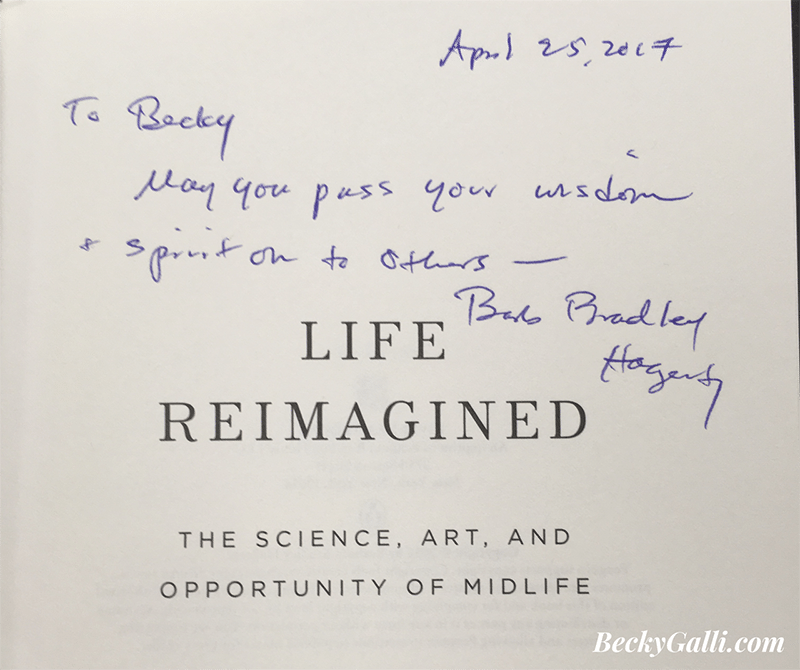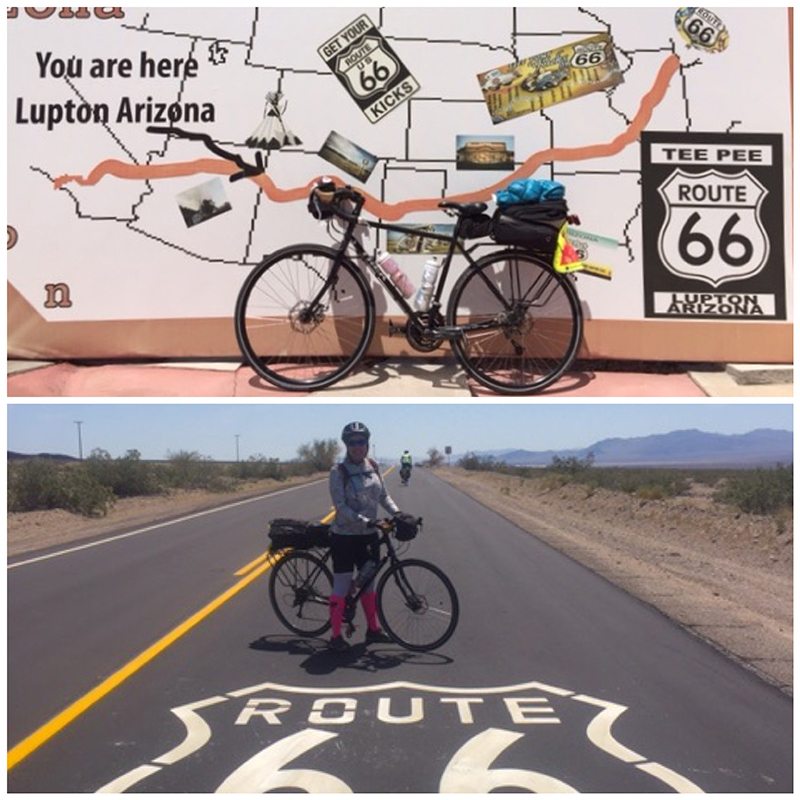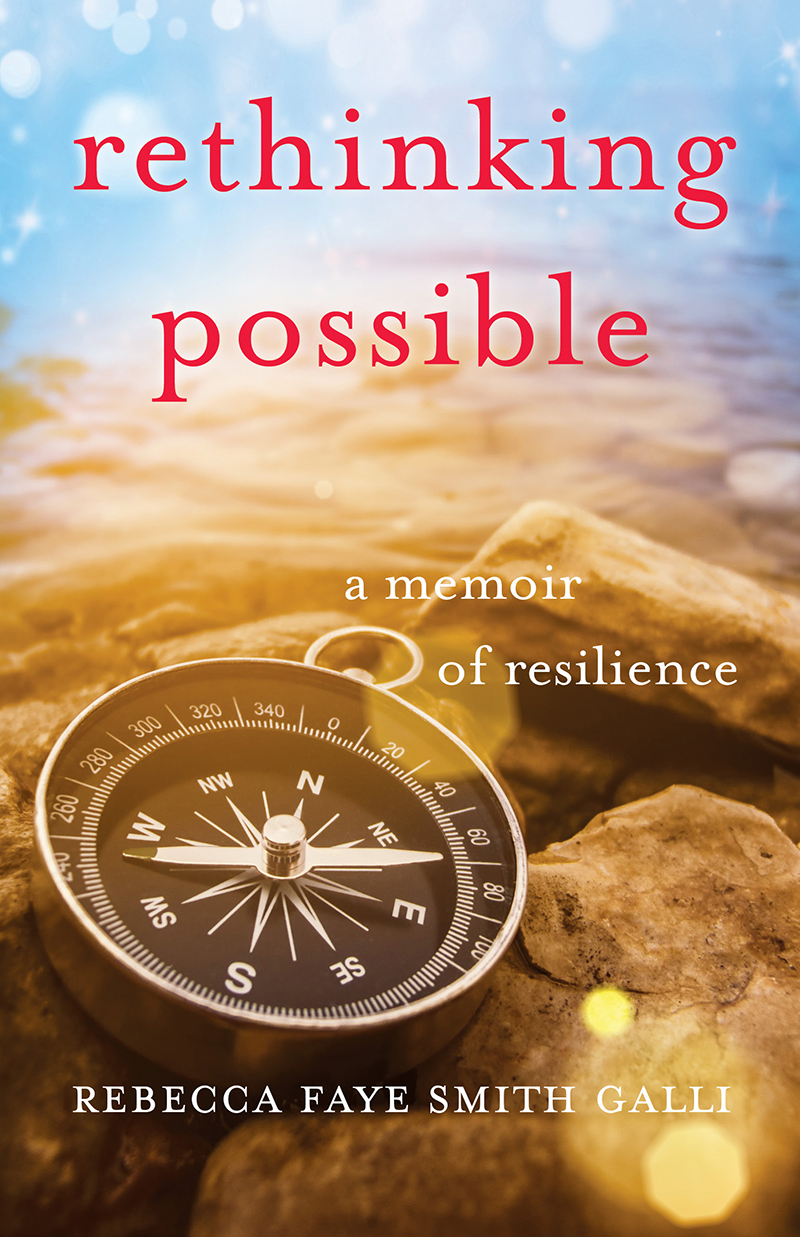
This week’s inspiration comes from Barbara Bradley Hagerty, former National Public Radio correspondent and author of Life Reimagined. Beyond the encouraging words she wrote when she signed her book for me (so exciting!), she also re-energized me with her insights about living well, even when we struggle with life’s inevitable challenges.
Her talk, like her book, was chock full of both stories and scientific findings from two years of research and more than four hundred interviews. Her best advice:
1. Choose purpose over happiness. If we pursue long-term meaning rather than short-term happiness, we will likely find both, she contends. She introduced me to a new word: eudaemonia, from one of my favorite Greek thinkers, Aristotle. Eudaemonia is the idea of living a good life by pursuing goals that give meaning to life. It is striving toward goals, large or small, that give an abiding satisfaction.
When you think about it, some of the most meaningful endeavors we pursue in life don’t yield instant happiness—raising children, beginning a new career, or choosing a pursuit that requires sustained effort like:
My Mount Everest-climbing friend Beth’s current adventure, a 50-day, 2500 mile, Route 66 bike ride from Los Angeles to Chicago:

Or my son’s commitment to wrestle at the collegiate level:

Or my decision to publish a memoir that took me twenty years to write!

These pursuits don’t make us “happy” every day, that’s for sure! But do they have the potential to yield fulfillment and give our lives meaning?
Absolutely.
And there’s an unexpected bonus: eudaemonia can make us robust, energizing us. And when we “find a reason to get up in the morning,” she reminded us, the research confirms that we will live longer, enjoy a happier old age, better retain our memory, and be more likely not only to survive the setbacks we meet along the way, but to thrive.
2. Friendships matter. Cultivate them. The more friends you have, the healthier, happier, and more mentally acute you will be, now and in your later years. “We are wired for friends,” Hagerty says.
Her brain scans agreed.
As a participant in University of Virginia Professor Jim Coan’s “hand-holding study,” Hagerty found herself in an MRI machine with one ankle strapped with shock-producing electrodes while other sensors recorded her brain’s response. Once settled inside the machine, an “O” or “X” was flashed before her eyes. She was told no shock would be delivered with the “O.” However, when the “X” flashed, there was a one in five chance she’d be shocked. Her responses were tested when she was alone, with a stranger holding her hand, and then with a good friend holding her hand.
When alone or holding a stranger’s hand, the regions of the brain that process danger “lit up like a Christmas tree” when the “X” flashed. But when holding a friend’s hand, her brain grew quiet.
Why?
“What we think happens,” Professor Coan reported, “is having a friend with you alters the perception of that threat.” Our brain says that even if something dangerous happens, we have help from a trusted source.
Studies show that those with a network of friends live longer, recover faster from serious illnesses, and even preserve their memories better than those with few or no friends, Hagerty noted.
Pursuing goals with a deeper purpose and relying on trusted friends have both been important resources for me when life has been tough. How about you? Tell me about it. I’d love to know.
My best – always,
Becky (Nana B)
PS: oh, and my book is in production! Many thanks to those who have already pre-ordered. For those who would like to, click here:
Sign Up Here, if you’d like to receive Thoughtful Thursdays via email.
Follow Me!